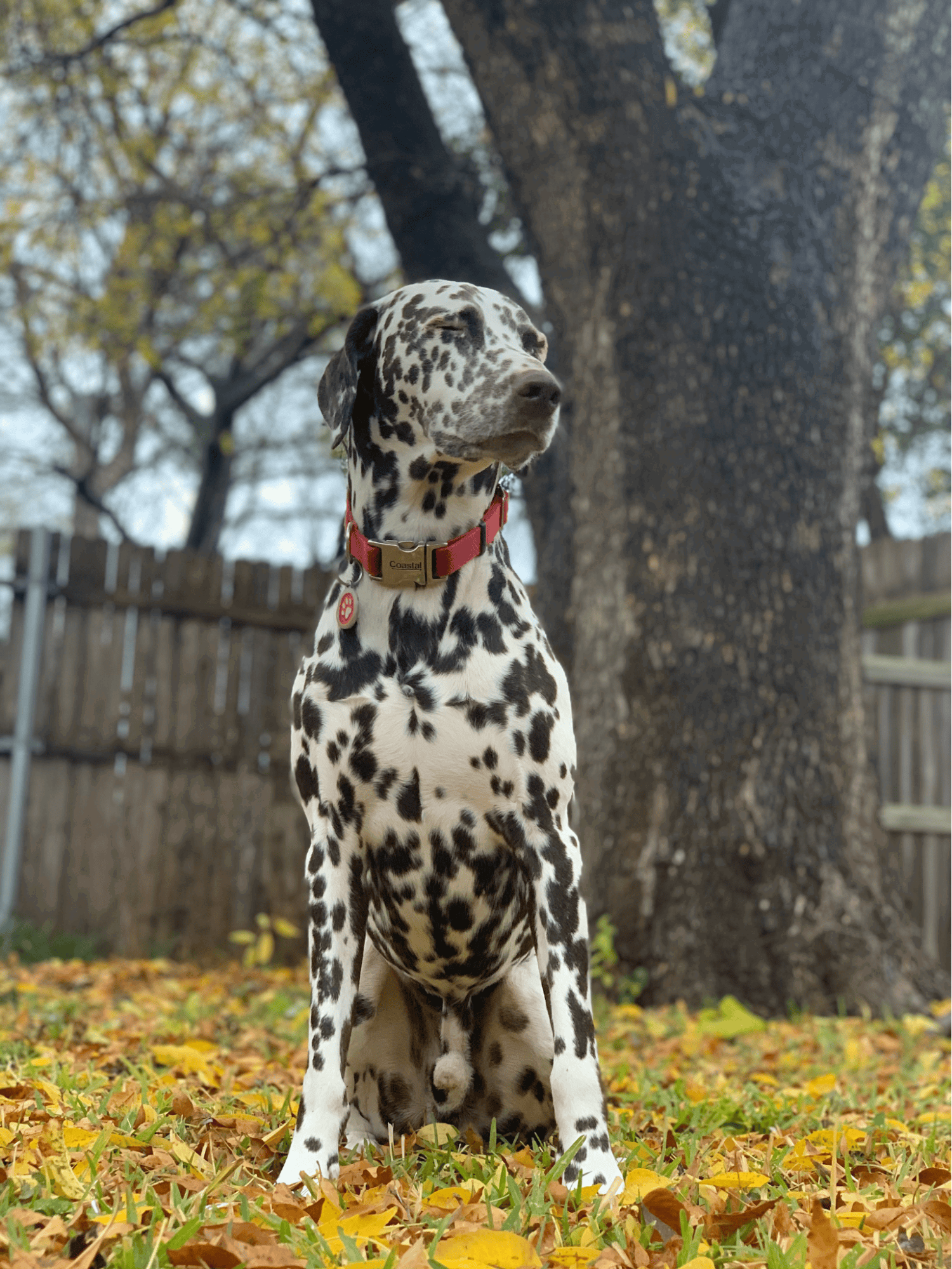
Dalmatian
Shortcuts
Dalmatians are loyal and brave companions with their unique spots and historical role as coach dogs. Their possible ancient Egyptian origins add to their mystery, yet their intelligence and playfulness are undeniable. These energetic dogs thrive on physical and mental stimulation, making them perfect for active individuals.
Adopting a Dalmatian requires understanding its needs for exercise and training. This commitment ensures that the dog’s energy is used positively, bringing joy and excitement into your life.
Breed Overview

Height
19 – 24 inches
Weight
45 – 70 pounds
Lifespan
11 – 13 years
Colors
White with black spots or brown spots (liver)
Suitable for
Active families and experienced dog owners
Temperament
Friendly, Affectionate, Intelligent, Loyal


Height
19 – 24 inches
Weight
45 – 70 pounds
Lifespan
11 – 13 years
Colors
White with black spots or brown spots (liver)
Suitable for
Active families and experienced dog owners
Temperament
Friendly, Affectionate, Intelligent, Loyal

The Dalmatian is known for its distinctive spots on a white coat. They are medium-sized, energetic, intelligent dogs that thrive in active homes and form strong bonds with their owners.
Characteristics
Energy

Health

Sociability

Trainability

Lifespan


Enjoying this read?
We publish this content for free to generate interest in our Premium members' area. By subscribing, you can ask the writer any questions related to pet care and this article, get access to 100+ Premium Pet Care Guides and go Ad-Free with DogFix Premium for $2.99.
Health Conditions
Due to their genetics, Dalmatians can have specific health issues. Deafness and kidney stones are common conditions within the breed. Responsible breeders ensure proper testing; owners should consult their vet for the best food choices. Despite these issues, Dalmatians are generally healthy dogs with simple dietary needs.
Minor Conditions
- Cataracts
- Microphthalmia
- Dalmatian Bronzing Syndrome (Dal Crud)
Serious Conditions
- Congenital Deafness
- Kidney and Bladder Stones
- Hip Dysplasia
- Congenital Laryngeal Paralysis
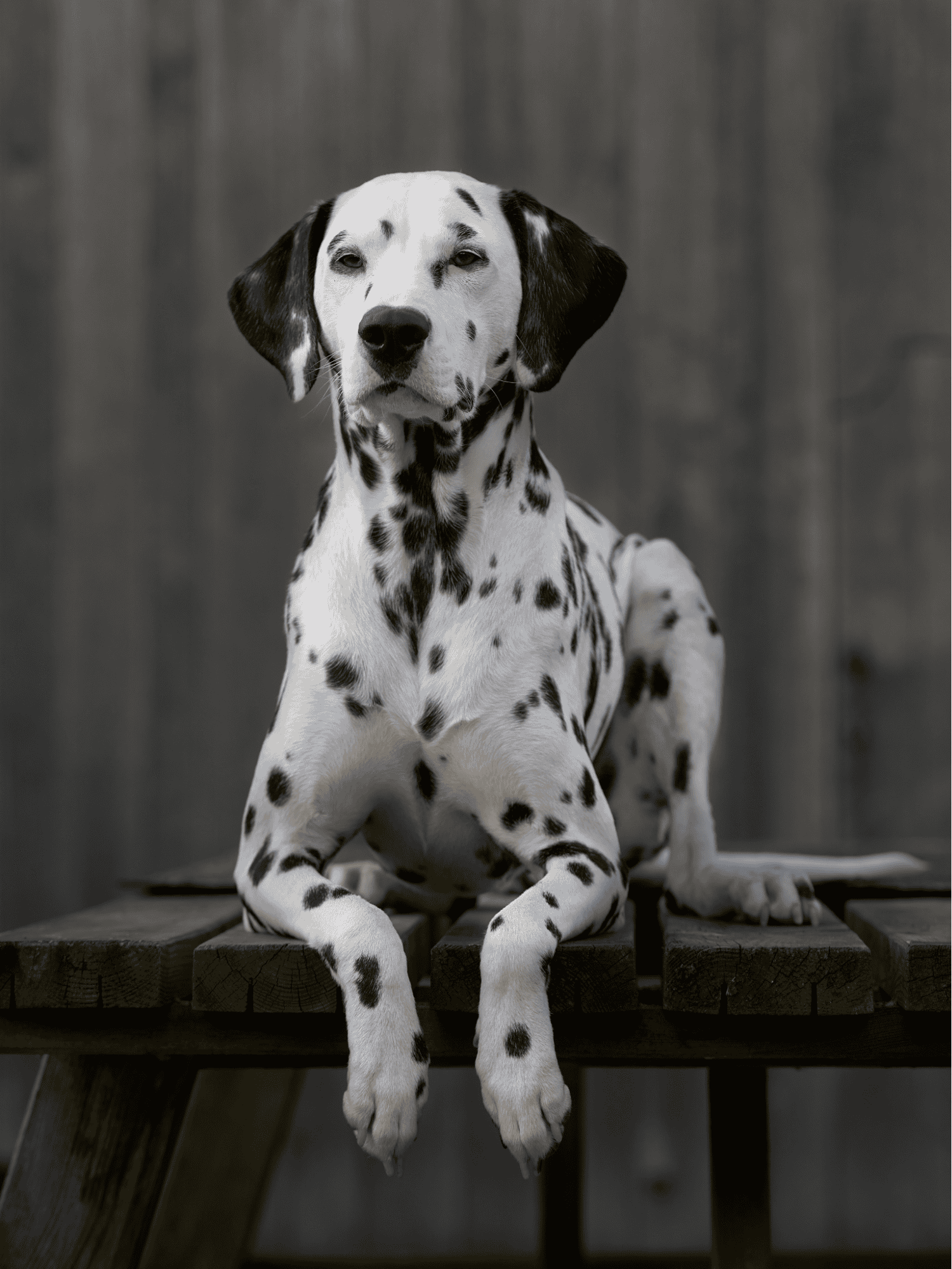
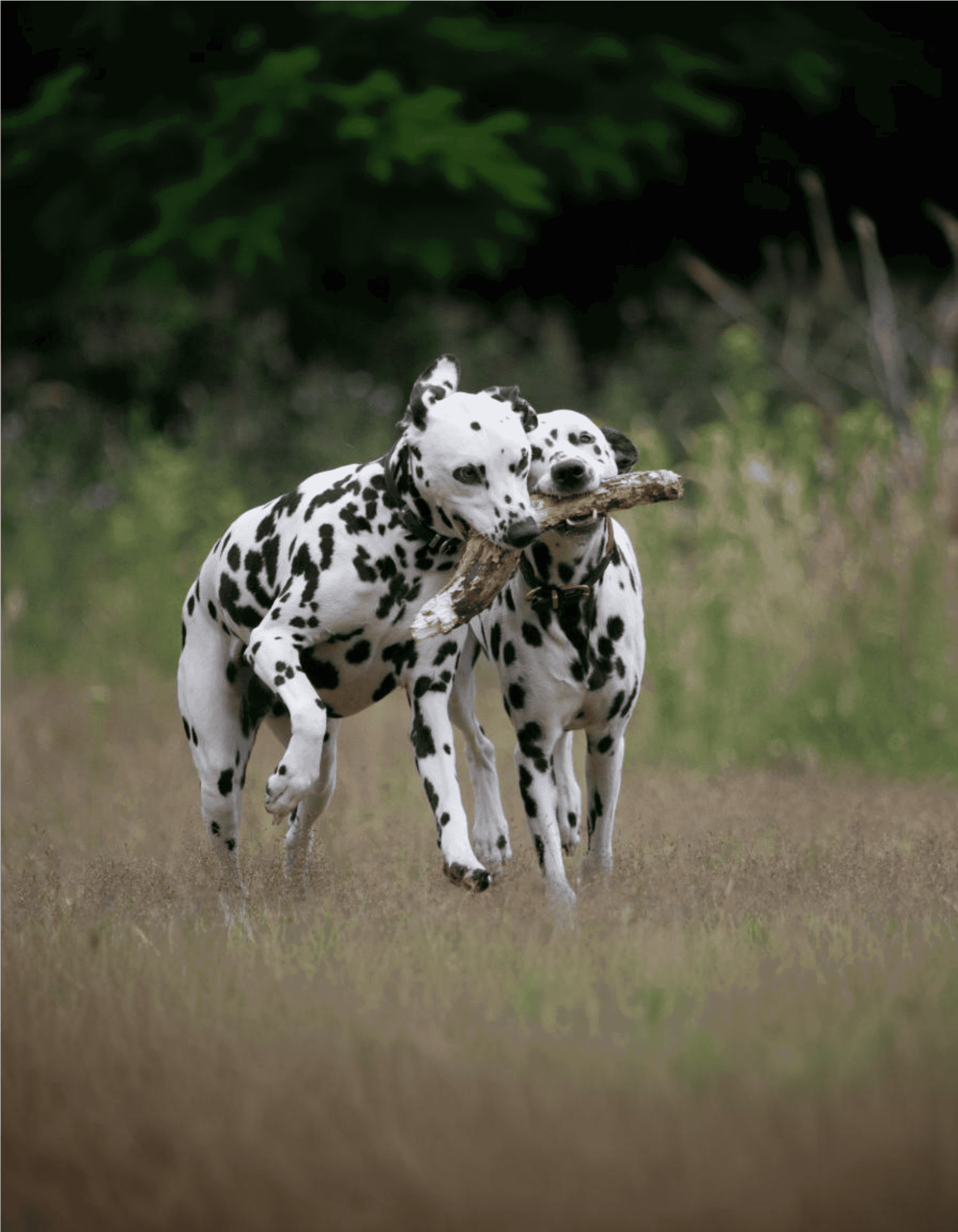
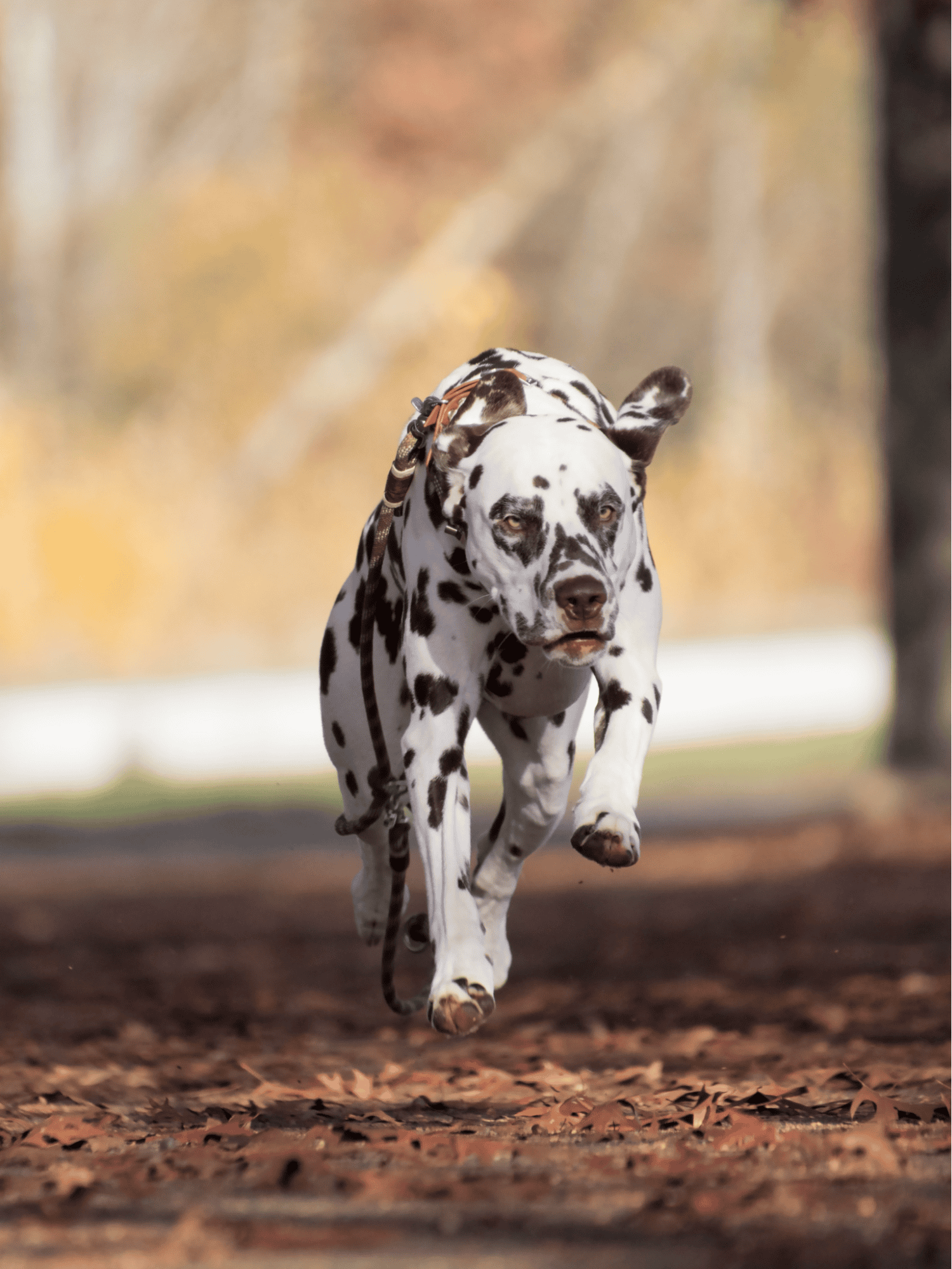
Dalmatian Puppies
Dalmatian puppies are an excellent addition to any home, offering loyal companionship despite their higher cost. Their distinctive coats and energetic nature truly set them apart. These puppies are full of energy and require daily vigorous activities, alongside mental exercises, to maintain their happiness and health. Keeping them engaged is crucial to prevent unwanted behaviors.
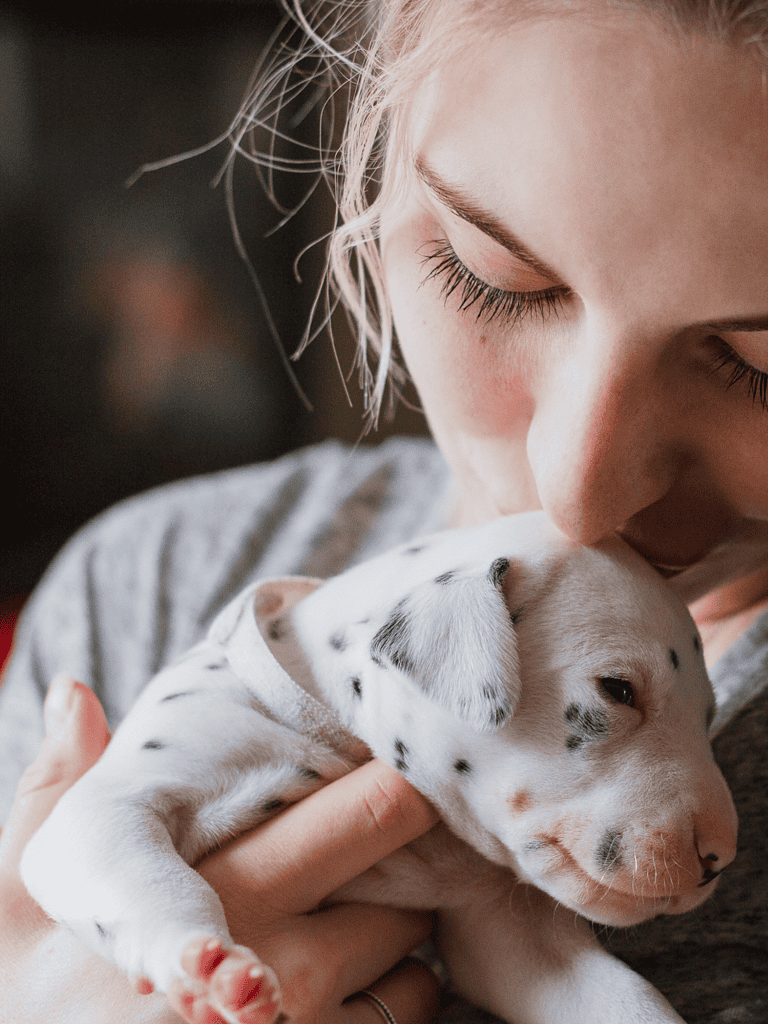
Training is essential for Dalmatian puppies, demanding firm and consistent efforts to channel their energy properly. They are quick learners, but patience and a routine are key. Adopting one means embracing an active lifestyle, as they flourish in environments that match their high energy. Owners can expect abundant playtime and affection, making these puppies ideal for energetic individuals or families ready to meet their needs.
Temperament & Intelligence Of The Dalmatian
Dalmatians are high-energy dogs that require a lot of physical and mental stimulation to avoid restlessness. Engaging in tasks and playful activities helps them use their energy and stay content. They bond strongly with their families, thriving on attention, making them loving, friendly companions. Due to their gentle nature, they are particularly good at home with children.
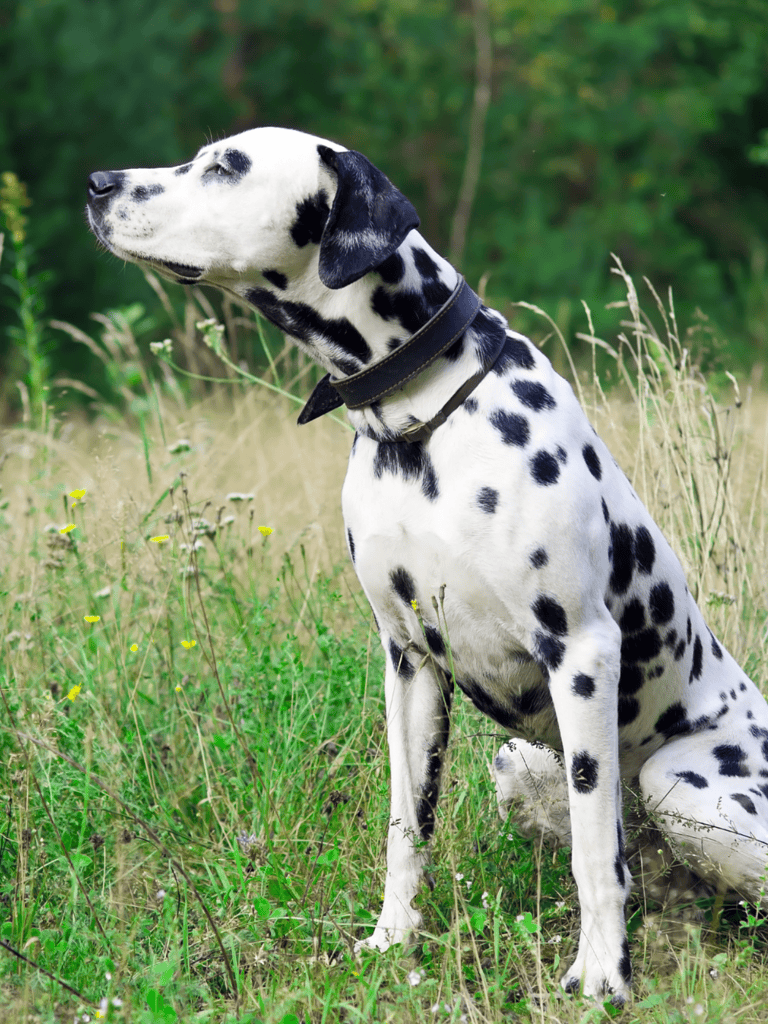
Despite their intelligence and love for tasks, Dalmatians can be reserved around strangers, but early socialization can remedy this. They’re not suited for families away often due to separation anxiety risks. Offering them various stimuli and consistent companionship allows these intelligent dogs to flourish.
Are These Dogs Good For Families?
Dalmatians are excellent companions for active families and are ideally suited to those who love outdoor activities and exercise. These energetic dogs flourish with ample space to run and play, thriving on adventure. Their lively nature makes them a suitable match for families with older children to prevent accidental knocks during energetic playtimes.
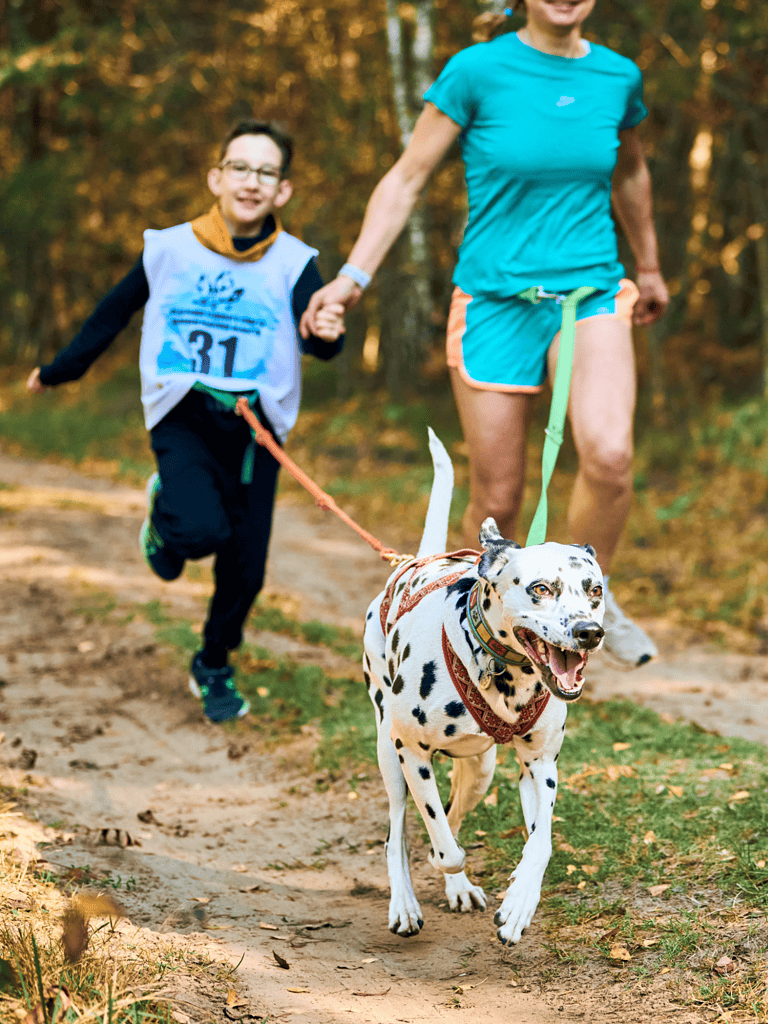
These dogs deeply value being part of family activities and bond closely with their human companions. Dalmatians also protect the children in their family, displaying a gentle side despite their exuberance. With proper supervision during play, they safely channel their energy while fostering meaningful family connections.
Does This Breed Get Along With Other Pets?
Dalmatians generally coexist well with other pets if socialized early, adapting better to living with various animals. This early interaction significantly influences their compatibility and behavior towards other household pets.
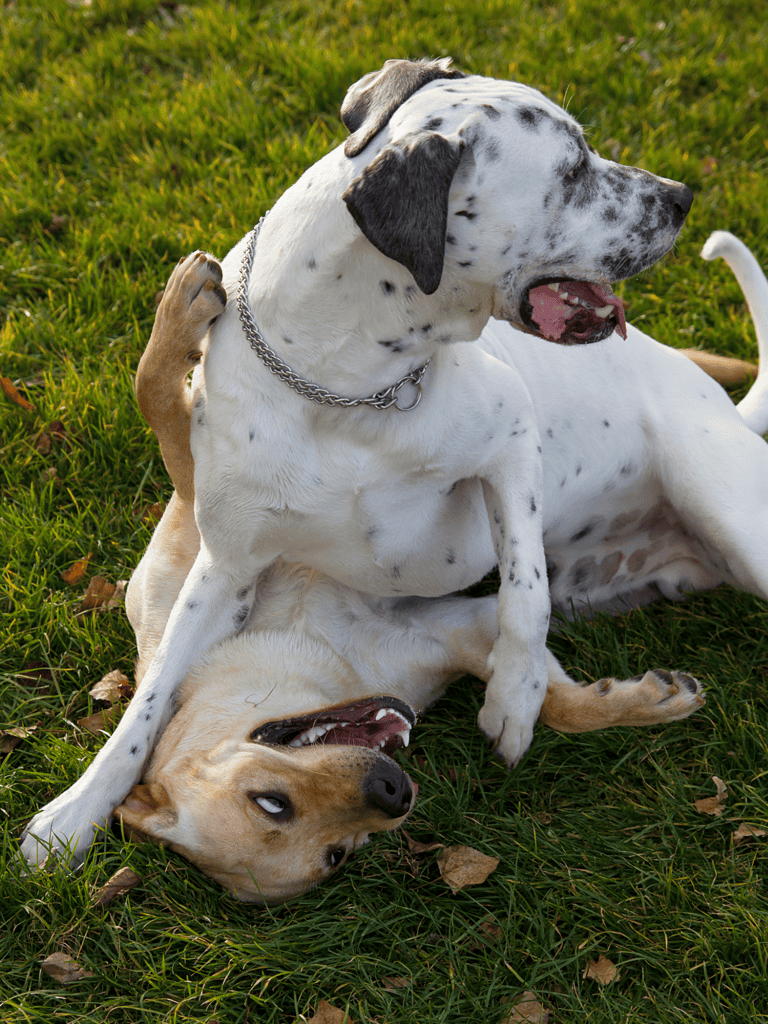
While Dalmatians might show aggression towards other dogs, especially those of the same sex, proper socialization can reduce this. Though their high energy can overwhelm cats, these dogs usually don’t intentionally harm them, lacking a natural inclination to hunt or harm feline companions.
Food & Diet Requirements
Dalmatians require a well-balanced and high-quality diet, ideally tailored to their age or breed. This approach addresses their unique nutritional needs. Given their propensity for bladder stones, a low-purine diet is essential for Dalmatians, but always consult a veterinarian first to ensure it’s the right choice.
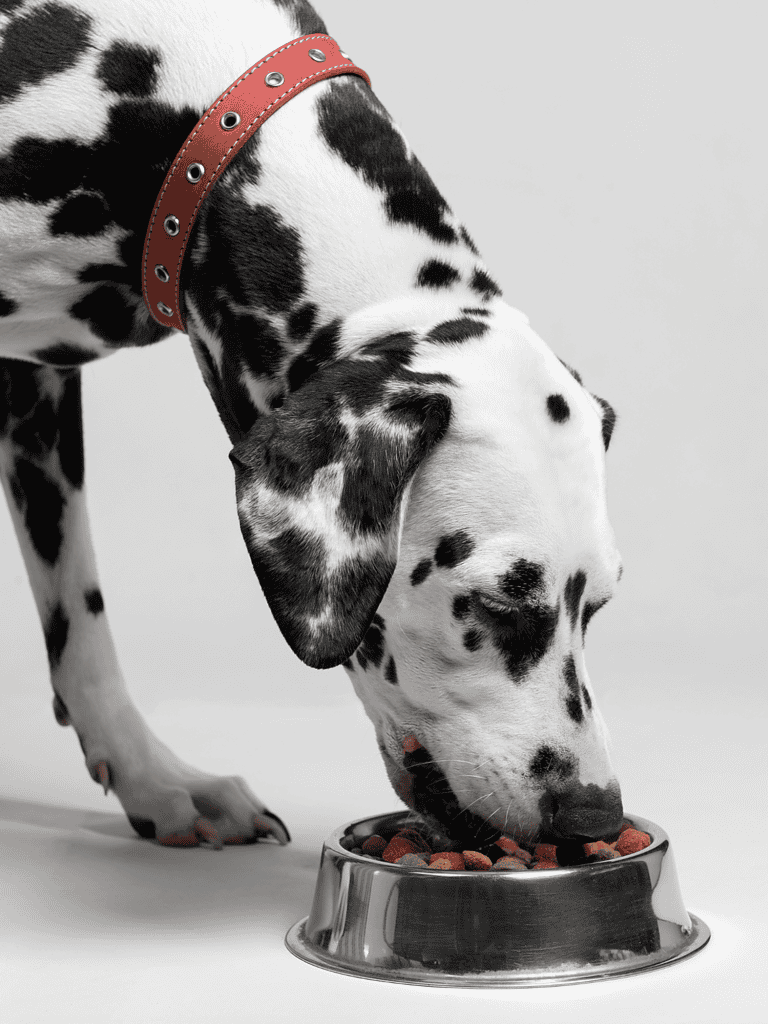
Feeding Dalmatians table scraps can increase the risk of bladder stones and lead to an unbalanced diet, so it’s best to avoid it. A veterinarian’s guidance is invaluable for concerns about daily caloric intake. They can determine the most appropriate calorie count based on the dog’s requirements.
Exercise
Due to their high energy, dalmatians require daily exercise. They need at least two hours of activities like walks, runs, and agility courses. Engaging them in hiking, trail running, playtime at the dog park, and backyard activities are excellent ways to burn off their energy. Without sufficient physical activity, Dalmatians may turn to destructive behaviors.
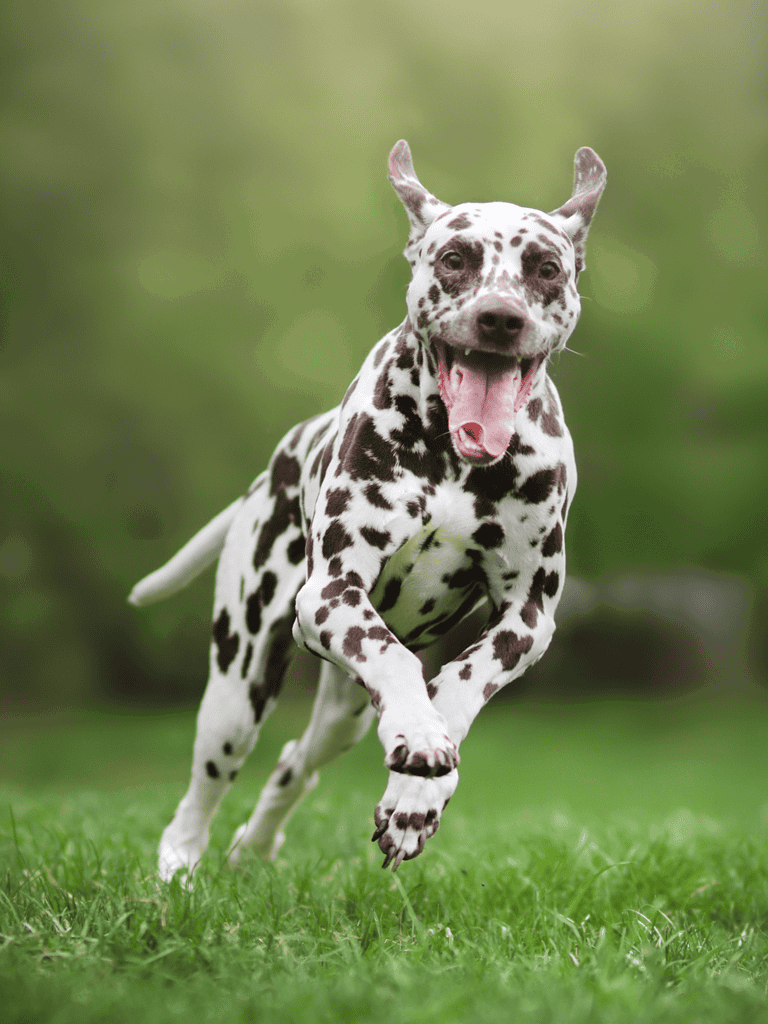
Essential exercises include daily walks, runs, and mental stimulation through agility courses. Additionally, activities like hiking and socializing at dog parks, alongside simple backyard games, can keep them well-engaged and happy.
Training
Dalmatians are remarkably intelligent, quickly mastering commands and tricks. However, they can show stubbornness and dominance without proper training. Beginning training immediately upon their arrival is essential, focusing on commands and socialization. Consistency and structure are essential for successful training.
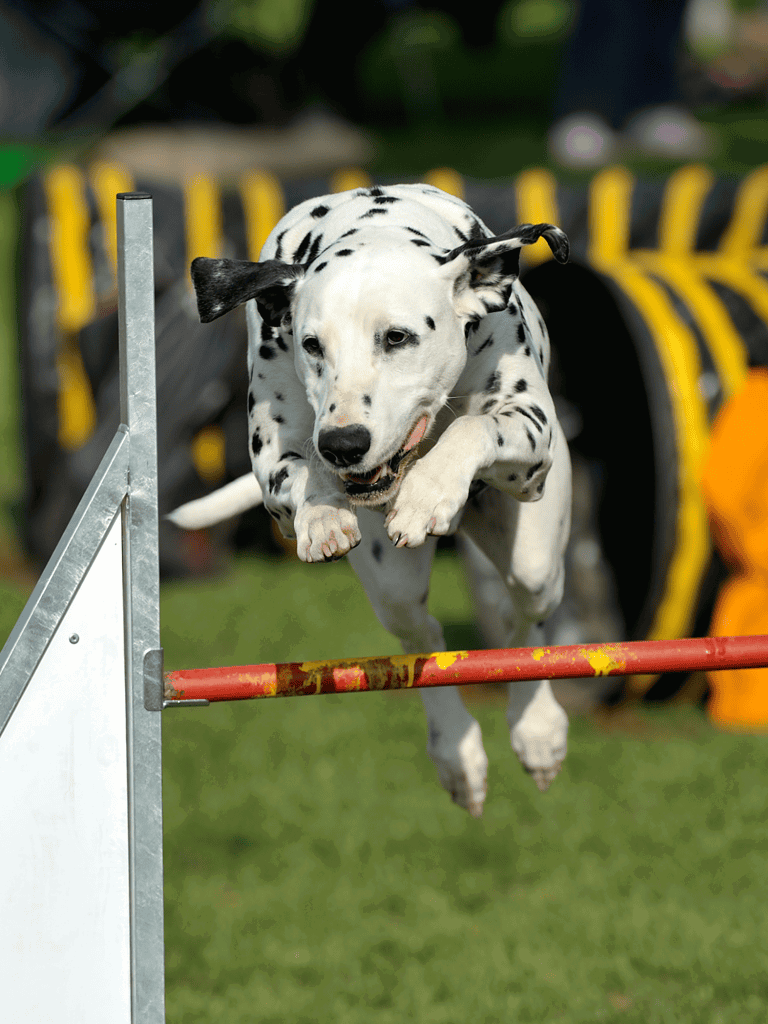
Given their strong-willed nature, Dalmatians thrive under the guidance of experienced owners or professional trainers. Utilizing rewards and positive reinforcement proves effective in maintaining consistent behavior. A well-trained Dalmatian is a happy, obedient companion, benefiting from clear, early-set boundaries and structures.
Grooming
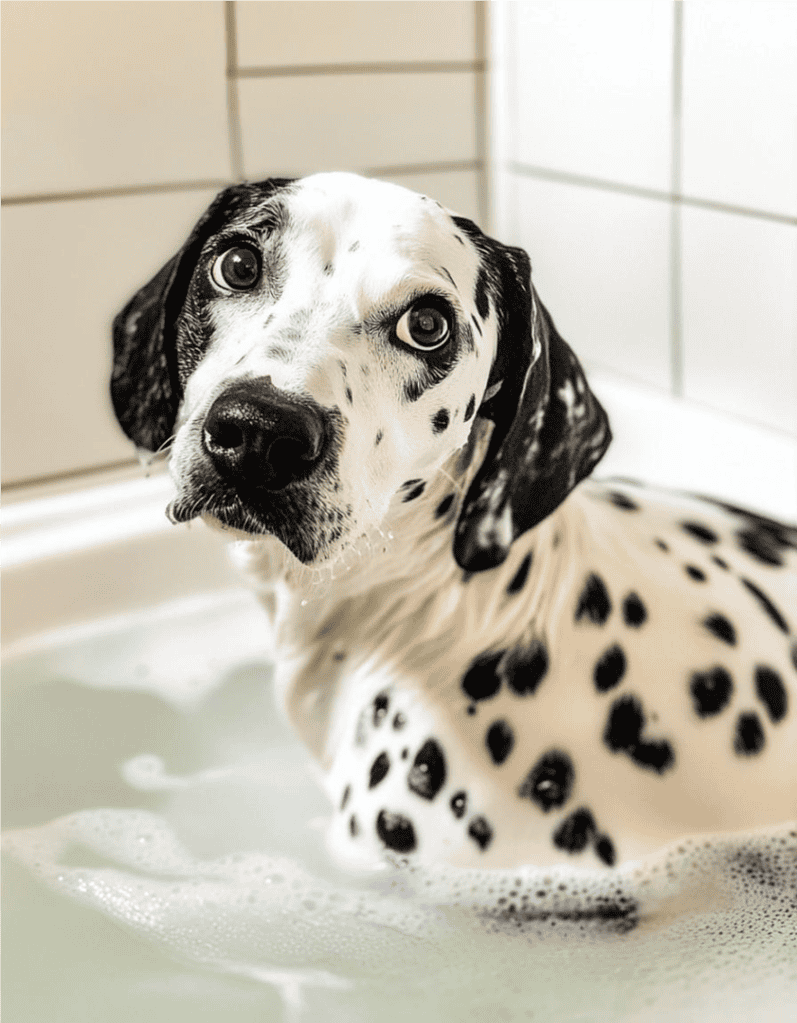
Regular grooming is essential to keep a Dalmatian looking its best. Use a rubber curry comb to brush their coat weekly and remove loose hair, which will help maintain their coat’s shine. Dalmatians have floppy ears and are prone to infections, so checking and cleaning them regularly is essential. You can bathe them occasionally to keep their coat clean. Remember to trim their nails regularly and maintain dental hygiene by brushing their teeth to prevent dental issues.
Male Vs. Female
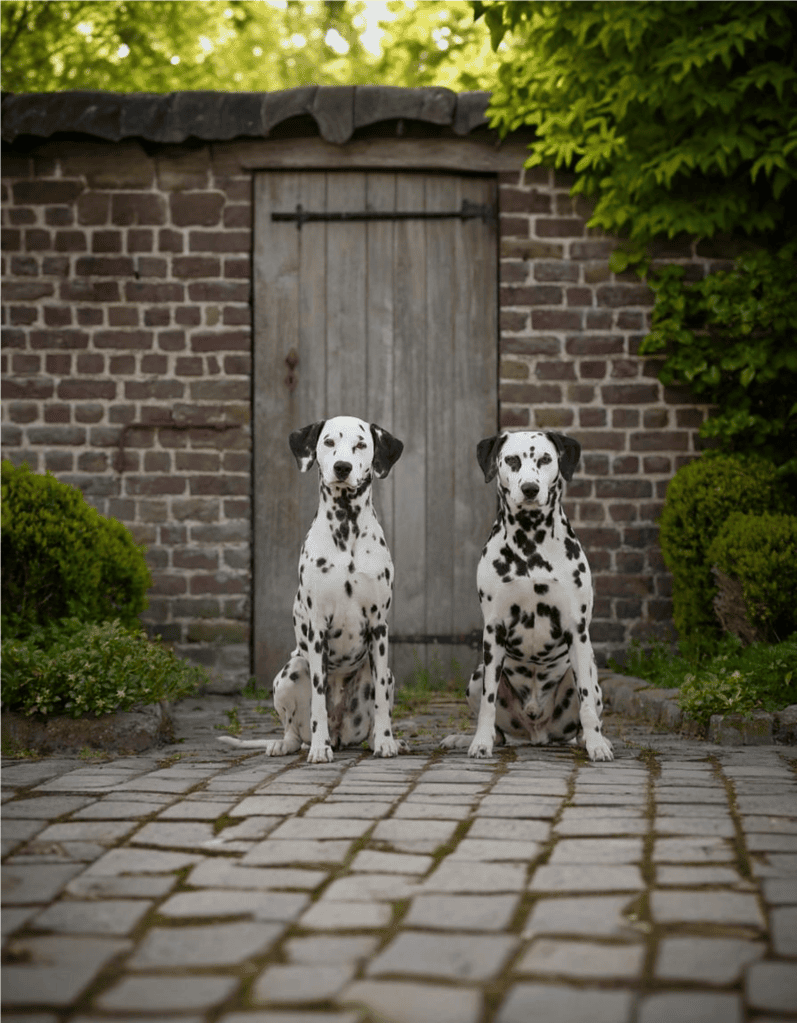
Male and female Dalmatians have some differences. Males are typically larger and heavier than females. Males may exhibit more aggression towards other dogs, but both sexes generally have similar temperaments. It’s important to note that spaying females are usually more costly than neutering males, which is a significant consideration when choosing between a male and a female Dalmatian.
Fact #1: Fire Departments Used Them as Coach Dogs
Dalmatians hold a notable historical connection with fire departments, tracing back to their roles with horse-drawn fire carriages. Their stable temperament and striking appearance made them perfect for calming horses and efficiently guiding them through streets.
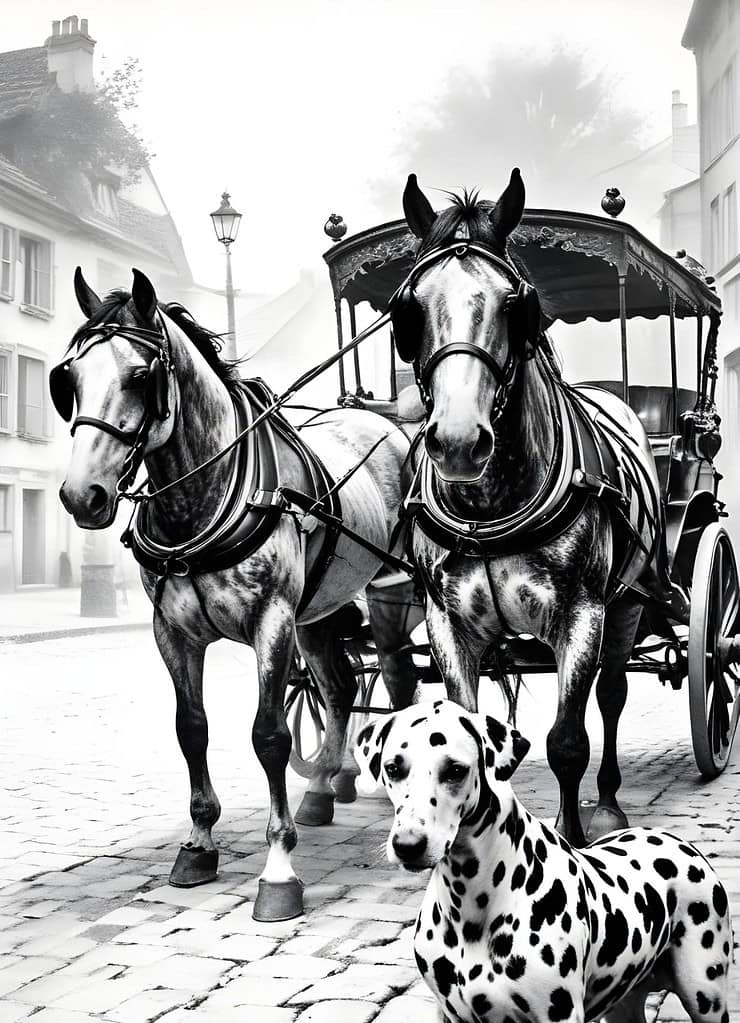
Despite the shift to motorized fire trucks, Dalmatians maintained their symbolic presence in firehouses as mascots, celebrating a legacy of bravery and tradition. Their iconic status in the fire service history emphasizes continuity and respect for the past.
Fact #2: Dalmatian Puppies Have No Spots at Birth
Dalmatian puppies are born white, and their iconic spots appear in the first few weeks. The first spots usually appear between 10 to 14 days, with a complete pattern visible by one month. Each Dalmatian’s spot is unique, making every puppy genuinely one-of-a-kind.
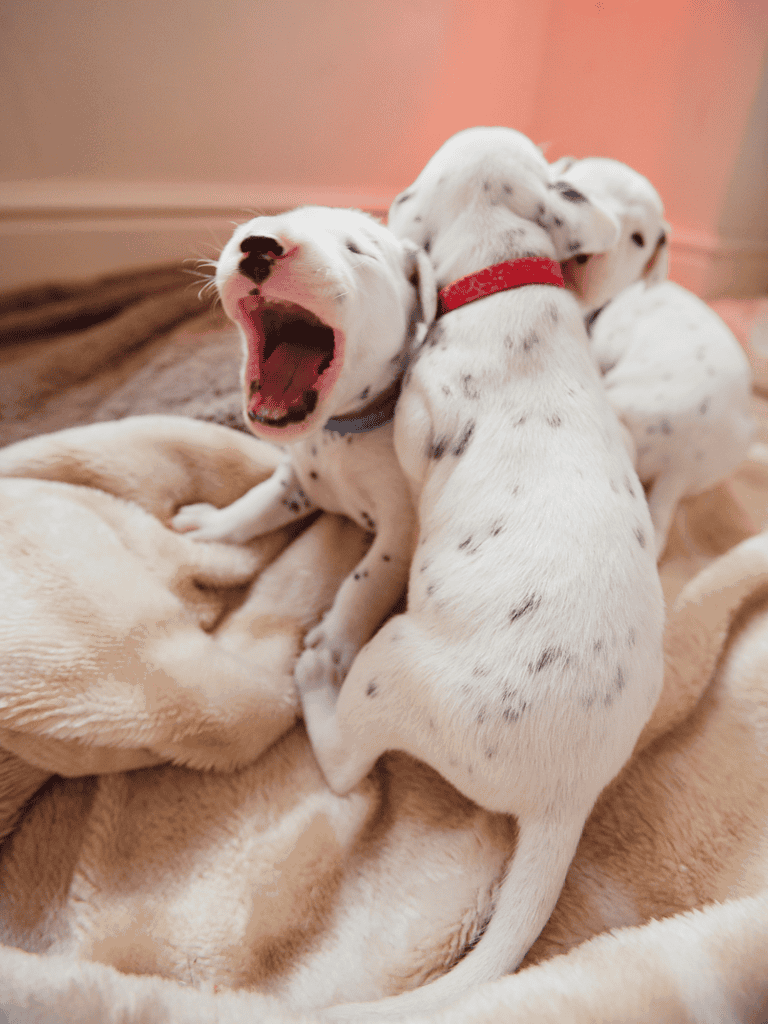
The specific look and distribution of a Dalmatian’s spots are heavily influenced by genetics, with selective breeding affecting spot characteristics. Although Dalmatians continue to develop spots as they grow, the changes are less noticeable after the first year.
Fact #3: Their Coats Are One-of-a-Kind
Dalmatians stand out with their distinctive coat patterns. Each features a unique spot arrangement akin to human fingerprints, ensuring no two dogs look exactly alike. The stark contrast between their white fur and dark spots and the variability in spot sizes and density contribute significantly to their unique appearance.
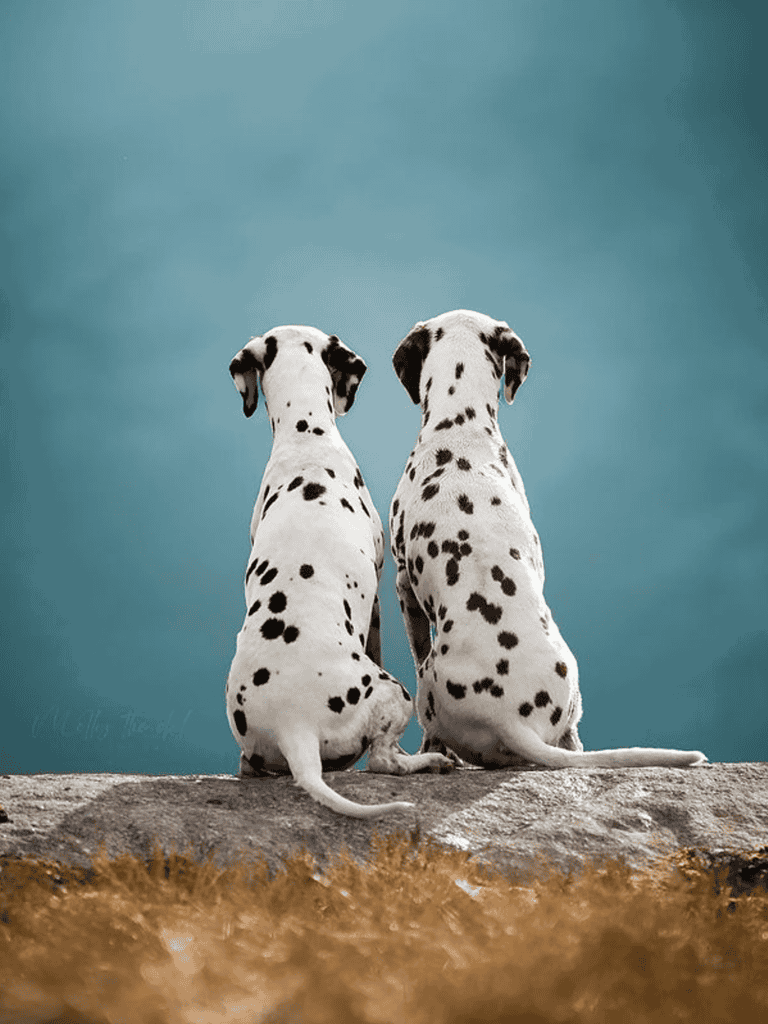
These dogs are born with white coats, with spots appearing a few weeks post-birth, defining their iconic look. Proper grooming is crucial for maintaining their appearance, involving regular brushing to minimize shedding and bathing, coupled with a balanced diet to keep their skin healthy and fur glossy.
Frequently Asked Questions
What is the average weight range for a Dalmatian?
Dalmatians typically weigh between 45 to 70 pounds. Males are generally slightly heavier than females.
What personality traits are typically seen in Dalmatians?
Dalmatians are energetic, intelligent, and friendly. They are known for their loyalty and often have a protective nature.
How long do Dalmatians generally live?
Dalmatians usually live 10 to 13 years, but some can live longer with proper care and nutrition.
What are the standard size dimensions of a Dalmatian?
Adult Dalmatians stand about 19 to 24 inches tall at the shoulder. Males are slightly larger than females.
What variety of colors do Dalmatians come in?
Dalmatians are primarily white with black or liver-colored spots, which are unique to each dog and offer a distinctive appearance.
How often do Dalmatians require grooming?
Dalmatians have short coats that require regular brushing once a week. They shed year-round and might need more frequent brushing during shedding seasons.

Didn’t find what you need? Use the search!
Search our database of over hundreds of posts with up-to-date information from our experts and veterinarians.

